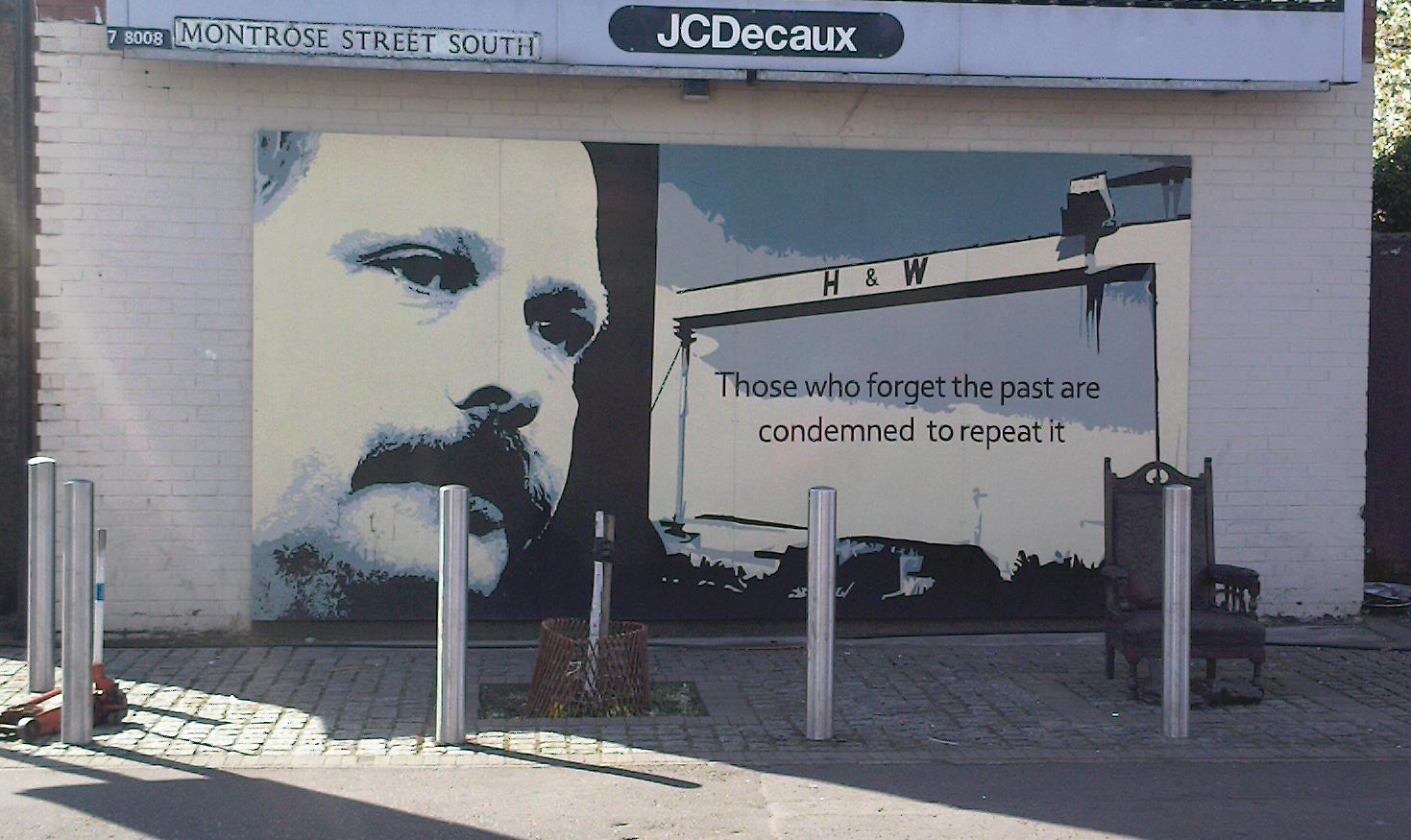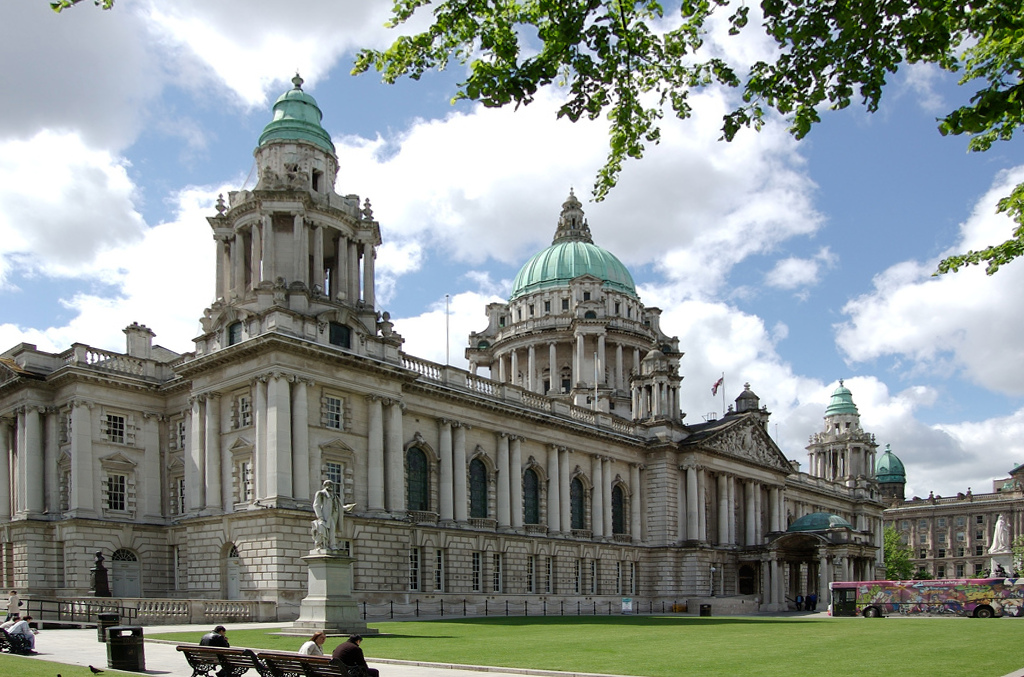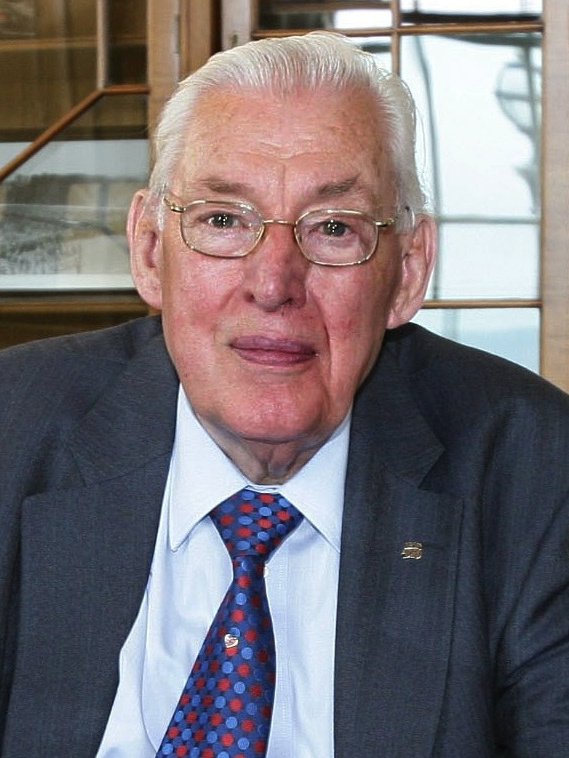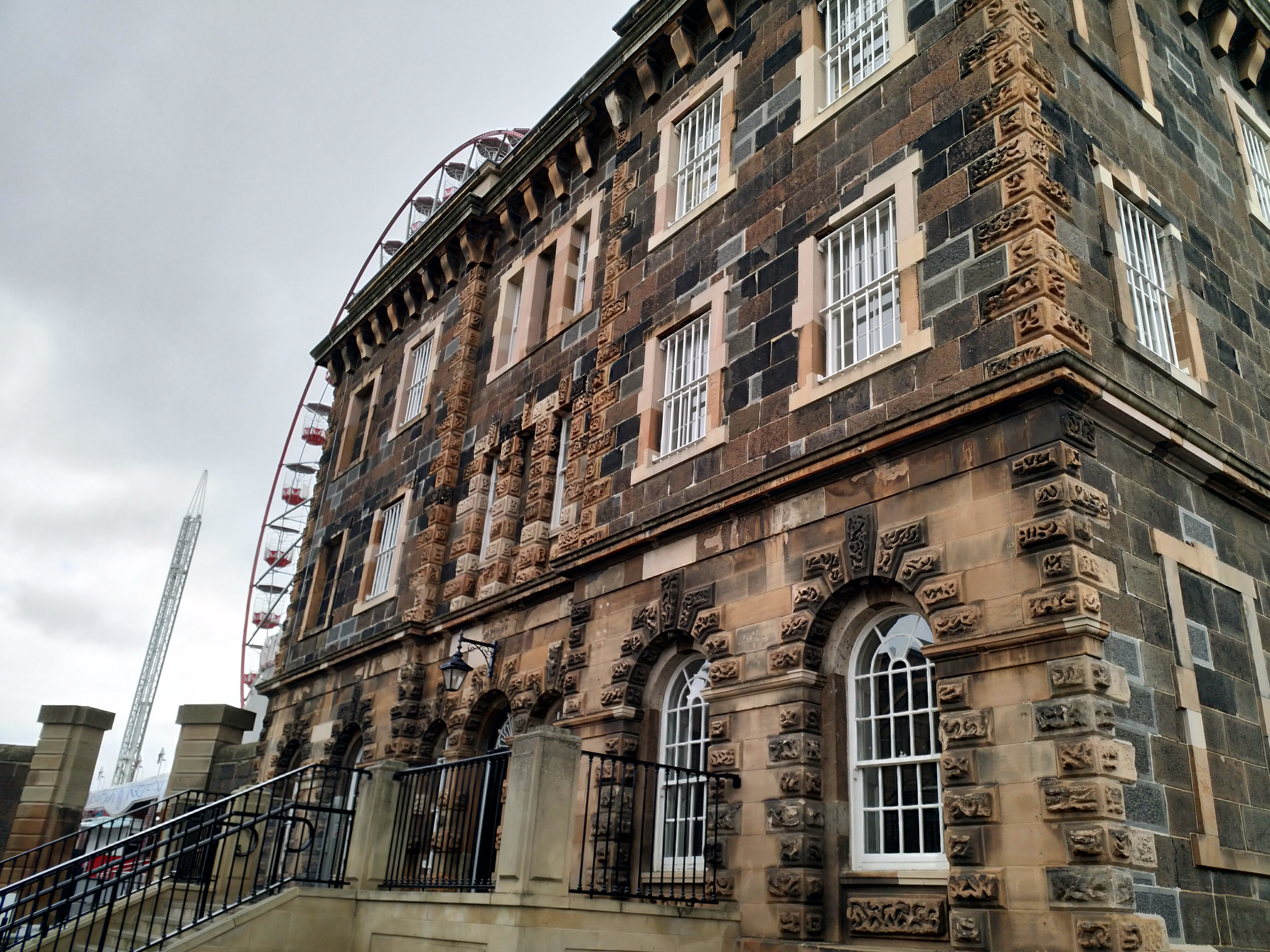|
David Ervine
David Ervine (21 July 1953 – 8 January 2007) was a Northern Irish Ulster Loyalist politician who served as leader of the Progressive Unionist Party (PUP) from 2002 to 2007, and was also a Member of the Northern Ireland Assembly (MLA) for Belfast East from 1998 to 2007. During his youth Ervine was a member of the Ulster Volunteer Force (UVF) and was imprisoned for possessing bomb-making equipment. Whilst in jail he became convinced of the benefits of a more political approach for Ulster loyalism and became involved with the PUP. As a leading PUP figure, Ervine helped to deliver the loyalist ceasefire of 1994. Biography David Ervine was the youngest of five children born to Walter and Elizabeth Ervine, and raised in a Protestant working-class area of east Belfast between the Albertbridge and Newtownards roads. His household was not loyalist at all, his father Walter described himself as a socialist, had no time for Ian Paisley and didn't attend church. When Ervine joined the O ... [...More Info...] [...Related Items...] OR: [Wikipedia] [Google] [Baidu] |
Progressive Unionist Party
The Progressive Unionist Party (PUP) is a minor unionist political party in Northern Ireland. It was formed from the Independent Unionist Group operating in the Shankill area of Belfast, becoming the PUP in 1979. Linked to the Ulster Volunteer Force (UVF) and Red Hand Commando (RHC), for a time it described itself as "the only left of centre unionist party" in Northern Ireland, with its main support base in the loyalist working class communities of Belfast. Since the Ulster Democratic Party's dissolution in 2001, the PUP has been the sole party in Northern Ireland representing paramilitary loyalism. Party leaders History The party was founded by Hugh Smyth in the mid-1970s as the "Independent Unionist Group". In 1977, two prominent members of the Northern Ireland Labour Party, David Overend and Jim McDonald, joined. Overend subsequently wrote many of the group's policy documents, incorporating much of the NILP's platform.Aaron Edwards, ''A history of the Norther ... [...More Info...] [...Related Items...] OR: [Wikipedia] [Google] [Baidu] |
Ulster Volunteer Force (1966)
The Ulster Volunteer Force (UVF) is an Ulster loyalist paramilitary group. Formed in 1965, it first emerged in 1966. Its first leader was Gusty Spence, a former British Army soldier from Northern Ireland. The group undertook an armed campaign of almost thirty years during The Troubles. It declared a ceasefire in 1994 and officially ended its campaign in 2007, although some of its members have continued to engage in violence and criminal activities. The group is a proscribed organisation and is on the terrorist organisation list of the United Kingdom. The UVF's declared goals were to combat Irish republicanism – particularly the Irish Republican Army (IRA) – and to maintain Northern Ireland's status as part of the United Kingdom. It was responsible for more than 500 deaths. The vast majority (more than two-thirds) (choose "religion summary" + "status" + "organisation") of its victims were Irish Catholic civilians, who were often killed at random. During the conflict, ... [...More Info...] [...Related Items...] OR: [Wikipedia] [Google] [Baidu] |
Northern Ireland Forum
The Northern Ireland Forum for Political Dialogue was a body set up in 1996 as part of a process of negotiations that eventually led to the Good Friday Agreement in 1998. The forum was elected, with five members being elected for each Westminster Parliamentary constituency for Northern Ireland, under the D'Hondt method of party-list proportional representation. There was also a "topup" of two seats for the ten parties polling most votes; this ensured that two loyalist parties associated with paramilitary groups were represented. See members of the Northern Ireland Forum for a complete list. Election results The results of the election were: ''All parties shown.'' Note: The Democratic Unionist Party was listed on the ballot paper as "Democratic Unionist Party DUP Ian Paisley Ian Richard Kyle Paisley, Baron Bannside, (6 April 1926 – 12 September 2014) was a Northern Irish loyalist politician and Protestant religious leader who served as leader of the Democrati ... [...More Info...] [...Related Items...] OR: [Wikipedia] [Google] [Baidu] |
John Major
Sir John Major (born 29 March 1943) is a British former politician who served as Prime Minister of the United Kingdom and Leader of the Conservative Party from 1990 to 1997, and as Member of Parliament (MP) for Huntingdon, formerly Huntingdonshire, from 1979 to 2001. Prior to becoming prime minister, he served as Foreign Secretary and Chancellor of the Exchequer in the third Thatcher government. Having left school a day before turning sixteen, Major was elected to Lambeth London Borough Council in 1968, and a decade later to parliament, where he held several junior government positions, including Parliamentary Private Secretary and assistant whip. Following Margaret Thatcher's resignation in 1990, Major stood in the 1990 Conservative Party leadership election to replace her and emerged victorious, becoming prime minister. Two years into his premiership, Major went on to lead the Conservative Party to a fourth consecutive electoral victory, winning more than 14 mil ... [...More Info...] [...Related Items...] OR: [Wikipedia] [Google] [Baidu] |
1997 Northern Ireland Local Elections
Elections for local government were held in Northern Ireland on 21 May 1997, shortly after the 1997 general election across the entire United Kingdom. Results Overall By council Antrim Ards Armagh Ballymena Ballymoney Banbridge Belfast Carrickfergus Castlereagh Coleraine Cookstown Craigavon Derry Down Dungannon Fermanagh Larne Limavady Lisburn Magherafelt Moyle Newry and Mourne Newtownabbey North Down Omagh Strabane References {{United Kingdom local elections, 1997 Council elections in Northern Ireland Northern Ireland Northern Ireland ( ga, Tuaisceart Éireann ; sco, label=Ulster-Scots, Norlin Airlann) is a part of the United Kingdom, situated in the north-east of the island of Ireland, that is variously described as a country, province o ... [...More Info...] [...Related Items...] OR: [Wikipedia] [Google] [Baidu] |
Belfast City Council
Belfast City Council ( ga, Comhairle Cathrach Bhéal Feirste) is the local authority with responsibility for part of the city of Belfast, the capital and largest city of Northern Ireland. The Council serves an estimated population of (), the largest of any district council in Northern Ireland, while being the smallest by area. Belfast City Council is the primary council of the Belfast Metropolitan Area, a grouping of six former district councils with commuter towns and overspill from Belfast, containing a total population of 579,276. The council is made up of 60 councillors, elected from ten district electoral areas. It holds its meetings in the historic Belfast City Hall. The current Lord Mayor is Tina Black of Sinn Féin. As part of the 2014/2015 reform of local government in Northern Ireland the city council area expanded, and now covers an area that includes 53,000 additional residents in 21,000 households. The number of councillors increased from 51 to 60. The first e ... [...More Info...] [...Related Items...] OR: [Wikipedia] [Google] [Baidu] |
Northern Ireland Assembly
sco-ulster, Norlin Airlan Assemblie , legislature = Seventh Assembly , coa_pic = File:NI_Assembly.svg , coa_res = 250px , house_type = Unicameral , house1 = , leader1_type = Speaker , leader1 = Alex Maskey , election1 = 11 January 2020 , members = 90 , salary = £55,000 per year + expenses , structure1 = PartyNI2022.svg , structure1_res = 250px , political_groups1 = * Sinn Féin (27) N * DUP (25) U * Alliance (17) O * UUP (9) U * SDLP (8) N * TUV ( 1) U * PBP ( 1) O * Speaker (0) * Speaker (0) , political_groups2= , committees1 = , last_election1 = 5 May 2022 , next_election1 = , voting_system1 = Single transferable vote , session_room = NI Assembly chamber.png , session_res = 250px , session_room2 = StormontGeneral.jpg , session_res2 = 250px , meeting_ ... [...More Info...] [...Related Items...] OR: [Wikipedia] [Google] [Baidu] |
1985 Northern Ireland Local Elections
Elections for local government were held in Northern Ireland on 15 May 1985, contesting 565 seats in all. Background 1981 elections The previous elections had been fought in the middle of the hunger strike and the H-Block Prison Protest. Those elections had shown changes in party representation, with three parties, namely the Ulster Unionist Party (UUP), the Democratic Unionist Party (DUP) and the Social Democratic and Labour Party (SDLP), winning 75% of the seats. On the Unionist side, the DUP arrived at a position of near parity with the UUP, outpolling the latter by 851 votes, although the UUP managed to win more seats overall. Other changes on the Unionist side saw the disbandment of two smaller Unionist parties: the Unionist Party of Northern Ireland in September 1981 and the United Ulster Unionist Party in May 1984. On the nationalist side, while the SDLP maintained its dominant position, a greater number of elected candidates supporting the H-Block protest were elected. ... [...More Info...] [...Related Items...] OR: [Wikipedia] [Google] [Baidu] |
Billy Hutchinson
Billy "Hutchie" Hutchinson (born 1955) is an Ulster Loyalist politician serving as the leader of the Progressive Unionist Party (PUP) since 2011. He was elected to Belfast City Council in the 1997 elections. Hutchinson was a Member of the Northern Ireland Assembly (MLA) for Belfast North from 1998 to 2003. He lost his assembly seat in 2003, and his council seat in 2005. He returned to the council in 2014 and was re-elected in 2019. Before this he had been a member of the Ulster Volunteer Force (UVF) and was a founder of their youth wing, the Young Citizen Volunteers (YCV). UVF activity A native of the Shankill Road, Belfast, Hutchinson took part in a series of riots in the area, during which Shankill dwellers clashed with residents of the neighbouring nationalist Unity Flats area. Members of the UVF fired shots at Unity Flats and it was around this time Hutchinson became a member of the organisation, describing his part in the rioting as "my initiation" into the UVF. A strong ... [...More Info...] [...Related Items...] OR: [Wikipedia] [Google] [Baidu] |
Gusty Spence
Augustus Andrew Spence (28 June 1933 . '' Conflict Archive on the Internet (CAIN). Retrieved 5 April 2011. – 25 September 2011) was a leader of the paramilitary Ulster Volunteer Force (UVF) and a leading politician in Northern Ireland. One of the first UVF members to be co ... [...More Info...] [...Related Items...] OR: [Wikipedia] [Google] [Baidu] |
Maze (HM Prison)
Her Majesty's Prison Maze (previously Long Kesh Detention Centre, and known colloquially as The Maze or H-Blocks) was a prison in Northern Ireland that was used to house alleged paramilitary prisoners during the Troubles from August 1971 to September 2000. It was situated at the former Royal Air Force station of Long Kesh, on the outskirts of Lisburn. This was in the townland of Maze, about southwest of Belfast. The prison and its inmates were involved in such events as the 1981 hunger strike. The prison was closed in 2000 and demolition began on 30 October 2006, but on 18 April 2013 it was announced by the Northern Ireland Executive that the remaining buildings would be redeveloped into a peace centre. Background Following the introduction of internment in 1971, Operation Demetrius was implemented by the Royal Ulster Constabulary (RUC) and British Army with raids for 452 suspects on 9 August 1971. The RUC and army arrested 342 Irish nationalists, but key Provisiona ... [...More Info...] [...Related Items...] OR: [Wikipedia] [Google] [Baidu] |
Crumlin Road Gaol
HMP Belfast, also known as Crumlin Road Gaol, is a former prison situated on the Crumlin Road in north Belfast, Northern Ireland. Since 1996 it is the only remaining Victorian era former prison in Northern Ireland. It is colloquially known as ''the Crum''. The Northern Ireland Environment Agency has given it a grade A listed building status because of its architectural and historical significance. The Crumlin Road Courthouse, derelict since its closure, stands opposite the Gaol with a tunnel under the main road connecting the two buildings and used previously to transport the prisoners between both buildings. Early history Designed by Sir Charles Lanyon, the prison was built between 1843 and 1845 and cost £60,000. Built as a replacement for the County Gaol on Antrim Street in Carrickfergus, and known as the County Gaol for Antrim, it was constructed of black basalt rock on ten acres at the bottom of the Crumlin Road. Partly based on HM Prison Pentonville, it was one of th ... [...More Info...] [...Related Items...] OR: [Wikipedia] [Google] [Baidu] |




.jpg)


